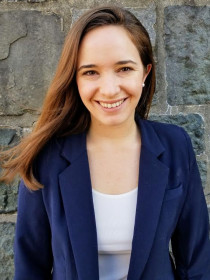
Alexa Solazzo
Connect with Alexa
About Alexa
Solazzo's work focuses on the role that state policy and stigma play in health outcomes and health care access, particularly for women and lesbian, gay, and bisexual (LGB) people. Much of her work also looks at how specific subgroups of women or LGB people are inordinately impacted by policies.
As part of her postdoctoral research, Solazzo is examining the long term association of maternal stigma towards LGB people on their queer children's health behaviors and health status. In her dissertation, she studied state level LGB stigma by testing how the LGB friendliness of a state as well as its laws are related to gay, lesbian, and bisexual people's health status and health care access.
Contributions
Publications
Reveals that lesbian and bisexual women are less likely to receive timely pap tests than heterosexual women; however, lower pap test use for bisexual women is primarily driven by their poorer socioeconomic status relative to heterosexual women while the significantly lower odds of timely pap testing for lesbian women were unaffected by control measures. Highlights that mammogram usage is the same across sexual orientations.
Indicates that living in a LGB-friendly state is positively and significantly associated with rates of excellent self-rated health, routine health care utilization, and health insurance among sexual minority adults — but only among states with anti-discrimination law.
Discusses how restrictive abortion laws are associated with Black and Hispanic women's abortion timing. Suggests that the influence of state abortion laws on abortion timing is different for Black and Hispanic women based on their poverty — but white women seem to be affected similarly regardless of their income.